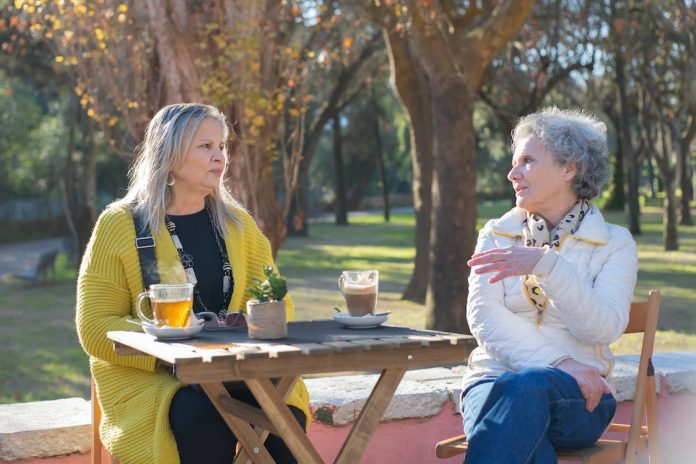People over the age of 65 make up over 16.8% of the population in the United States. One out of four of these older adults face some type of mental disorder. These disorders can range from depression to anxiety and dementia. Out of all these disorders, depression is by far the most common issue that the elderly face.
Unfortunately, there is evidence that conventional therapeutic techniques cannot be blindly applied to the elderly. They need to be adapted and modified to take into account the context of old age. This is due to the prevalence of dementia and the greater likelihood of medical conditions that interfere with the therapeutic process.
As a result, therapists have to deal with two fronts when attempting to counsel the elderly – the chief mental health issue (which may be paired with declining cognitive abilities) and the often poor state of the individual’s physical health. The combination of these two factors makes it challenging for a client to put in the mental effort to initiate change in their life.
It also makes it significantly difficult for therapists to succeed when they haven’t worked with this age group before. In today’s article, we will look at three useful tips that can be used when working with the elderly.
1. Be Prepared For Different Responses to Therapy
When relating with the elderly, one needs to keep in mind the perspective or lens through which they experience therapy. By the time people reach the age of sixty-five and above, they have seen and experienced much of what life has to offer.
They have seen suffering in the form of grief, loss, and illness. They have also experienced a lot of happiness and joy. Many elderly people come to recognize the transitory nature of life’s experiences. They understand that both joy and sorrow come and go regardless of one’s efforts.
As a therapist, you have to be hyper-aware of the mindset that your client is in. Their perspectives on life will greatly affect how effective therapy can be.
You want to avoid any approach that relies on simply applying techniques or trying to follow a formulaic sequence of steps. Solution-focused and other forms of cognitive behavior therapy are most effective when the client is highly motivated and engages with you throughout the therapeutic process. This may not always be the case with the elderly.
At this stage of life, many elderly people value authenticity and genuineness. Finding ways to tap into their core values will be key to getting them to open up and engage with you.
2. Don’t Be Afraid of Unconventional Therapeutic Techniques
It can be wise to consider an approach that will challenge their expectations of what therapy feels like. You would do this while still creating an environment for them to open up. For instance, if you have the freedom to do so, consider transforming each therapy session into a walk at a nearby park or even around the neighborhood.
You essentially want to disarm them of the notion that you are someone who has come to “fix them.” Similarly, creating goals and assigning homework, two common features of most modern therapeutic approaches, may not always be ideal.
Some therapists find going back to the old-school approach to psychology to be more effective. It involves using a more philosophical approach instead of an evidence-based, solution-focused one. When dealing with the elderly, many inexperienced therapists believe that the client is desperately searching for a solution to their problem.
However, a lot of times, mere ventilation of their worries is all that is required. Trying to rush them to “find a solution” is a common mistake. Instead, really ask yourself the following questions:
“What is it that this person really needs?” – do they have it?
“What is it that they are trying to convey through what they just said?” – did I understand it?
The way you relate to them based on these questions like these is critical. You would then use the insights gained from them in an intuitive and personalized manner.
3. Take Advantage of As Much Help As You Can Get
As a therapist, it can be frustrating when clients are late or fail to show up to sessions. However, many elderly people have health issues that can affect their ability to attend appointments regularly. These issues can also affect their mood and energy levels. The last thing you want is to try and interact with a client that is being forced to talk to you.
On the other hand, it can become overwhelming if you need to keep rescheduling. This is particularly the case if you are seeing multiple clients every day.
This is why many therapists rely on behavioral health EHR software. Among other benefits, they help manage scheduling and appointments. EHR stands for Electronic Health Records and has been in use for some time now in the world of healthcare.
According to Accumedic, EHR programs have already revolutionized the healthcare world. It makes sense that a good alternative should exist for mental health professionals. Such software solutions help make your therapy experience less overwhelming.
Similarly, try to find and take advantage of other tools and avenues that can aid you when treating the elderly. It could even come in the form of a conversation with a caretaker (if the client is in a senior citizen’s home). Having a chat with them can often prove to be invaluable in gaining context about a particular person.
Of course, you want to be ethical and keep confidentiality and privacy concerns in mind when doing so.
Conclusion
Therapy for the elderly is something that is unlike therapy for other age groups. You are relating with people who are aware that their life’s journey is nearing its conclusion. Feelings of regret about missed opportunities and a sense of hopelessness are extremely common.
Many of them have lost the people they loved and have children that no longer speak to or visit them. This can create a delicate emotional state. As a therapist, you will need to be sensitive to how your approach can affect them, for better or worse.
With the right approach, you have the potential to provide the elderly catharsis and a sense of peace about the life they have lived.
























